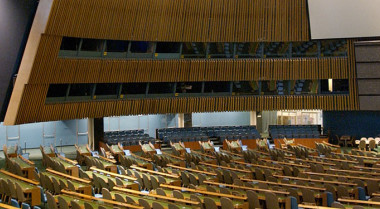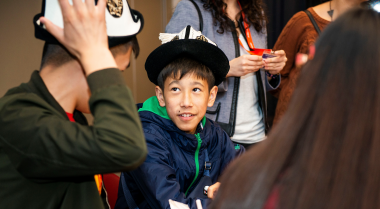
Best Practices in Financing for Peacebuilding: A Funding Stream for Youth by Youth
The lack of available and flexible funding for peacebuilding is a well-known problem. This is especially true if you are a young peacebuilder working to advance peace and solve conflict in your communities.
Indeed, young peacebuilders are often financially slowed down in their ambitions due to strict donor requirements, such as absorption capacity, that hardly reconcile with their reality on the ground. Typically, they operate on a limited budget and on a volunteer basis. They are only starting to build their track record and do not yet possess all administrative documents (proof of tax exemption, audited financial statements, etc). These eligibility demands make it difficult if not impossible for young peacebuilders to meet the required threshold criteria imposed by the majority of peacebuilding donors.
How, then, can an organisation like GPPAC contribute to allocating funding to youth-led organisations? Based on the recommendations put forward by the United Network of Young Peacebuilders, GPPAC member and youth-led organisation, the GPPAC YPS Small Grants scheme was funded in 2019. It supported three projects.
The YPS Small Grants Scheme: Investing in youth-led peacebuilding
The young changemakers in GPPAC’s Youth Peace and Security Working Group work to support the innovative ideas of young peacebuilders across the network. They wanted to alleviate administrative hurdles for young men and women to access flexible funding easily and solely focus on implementing their project idea. At the same time, the members wanted to show that when youth-led projects are funded they make a real difference on the ground.
“We believe in the power of young people: with little resources, they can be mobilised to address structural causes of conflict in their communities”
- Saumya Aggarwal,
Virtual Peace Table: Redefining Our Future
And young men and women did make a difference on the ground. Their projects laid the groundwork for the meaningful participation of youth in peacebuilding in their respective communities:
- In Nigeria, in response to a lack of national focus on youth, peace, and security, the Youth 4 Peace Forum hosted by the Building Blocks for Peace Foundation led to the emergence of a movement of young men and women that continues to advocate for youth and security issues in the country.
- As a result of the meditation training by the Peace and Development Network Trust in Kenya, 30 young men and women living in an informal settlement in Nairobi now act as mediators and encourage their peers to become fellow agents of peace.
- In the Philippines, the Generation Peace Youth Network bolstered their advocacy for the meaningful inclusion of youth in the design of national programmes for young people through their grounded research and community expertise.
Moving towards long-term funding of youth-led peacebuilding projects
To achieve sustainable peace, we first and foremost need to acknowledge the crucial role youth are playing.
GPPAC’s Network Approach, provided an opportunity for the Youth Peace and Security Working Group to take the lead in the development of the YPS Small Grants scheme to support other young actors.
Through the Small Grants scheme, young men and women achieved meaningful and sustainable results in their respective communities. They were able to strengthen youth leadership across sectors and institutions while offering inspiring examples to be replicated elsewhere.
‘’Young people can deliver surprising results: that is why youth-friendly mechanisms to access resources to explore innovative peacebuilding approaches are essential!”
- Leonardo Parraga,
Virtual Peace Table: Redefining Our Future
The donor community needs to better recognise and support youth capacities and expertise. This involves including young people in the development of funding allocations. After all, when funding is easily accessible for youth-led peacebuilding organisations, inclusive and sustainable peace is possible.

